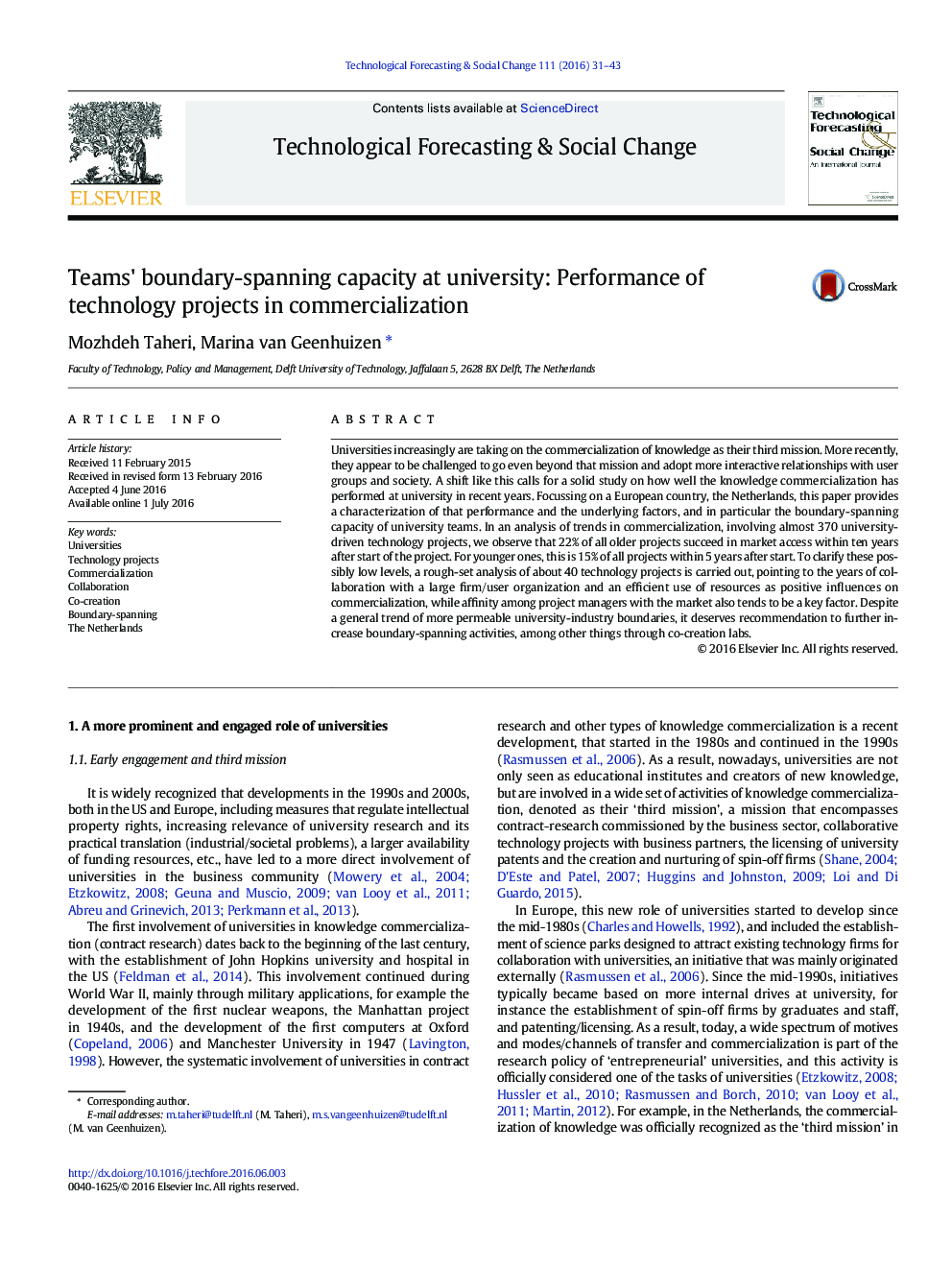| کد مقاله | کد نشریه | سال انتشار | مقاله انگلیسی | نسخه تمام متن |
|---|---|---|---|---|
| 5037148 | 1472389 | 2016 | 13 صفحه PDF | دانلود رایگان |
- Team capacity factors including boundary-spanning are found to be important.
- Long experience of collaboration with large firms makes shorter time to market likely.
- Low affinity with markets makes longer time to market likely.
- Low project efficiency may block a quick commercialization.
Universities increasingly are taking on the commercialization of knowledge as their third mission. More recently, they appear to be challenged to go even beyond that mission and adopt more interactive relationships with user groups and society. A shift like this calls for a solid study on how well the knowledge commercialization has performed at university in recent years. Focussing on a European country, the Netherlands, this paper provides a characterization of that performance and the underlying factors, and in particular the boundary-spanning capacity of university teams. In an analysis of trends in commercialization, involving almost 370 university-driven technology projects, we observe that 22% of all older projects succeed in market access within ten years after start of the project. For younger ones, this is 15% of all projects within 5Â years after start. To clarify these possibly low levels, a rough-set analysis of about 40 technology projects is carried out, pointing to the years of collaboration with a large firm/user organization and an efficient use of resources as positive influences on commercialization, while affinity among project managers with the market also tends to be a key factor. Despite a general trend of more permeable university-industry boundaries, it deserves recommendation to further increase boundary-spanning activities, among other things through co-creation labs.
Journal: Technological Forecasting and Social Change - Volume 111, October 2016, Pages 31-43
